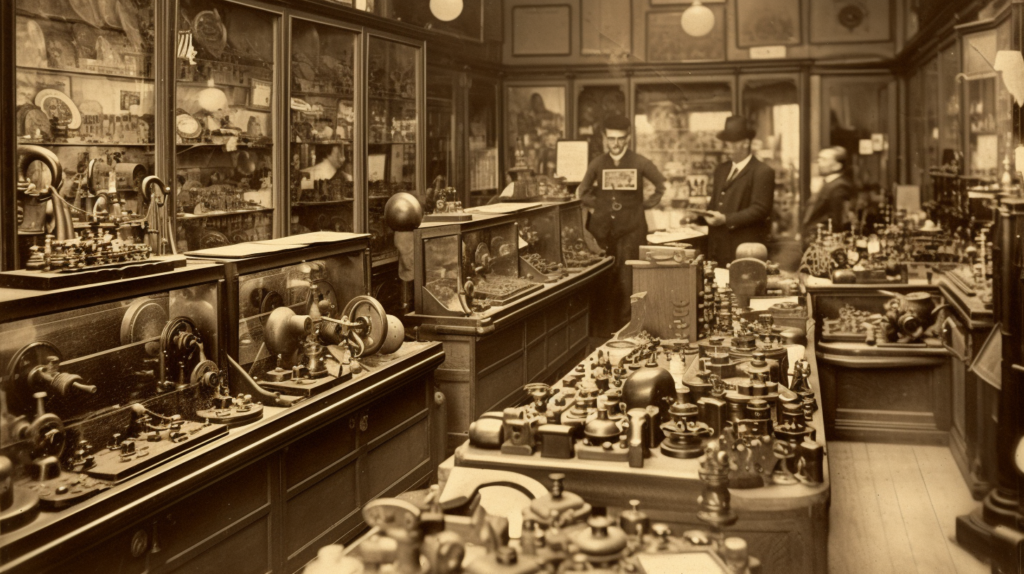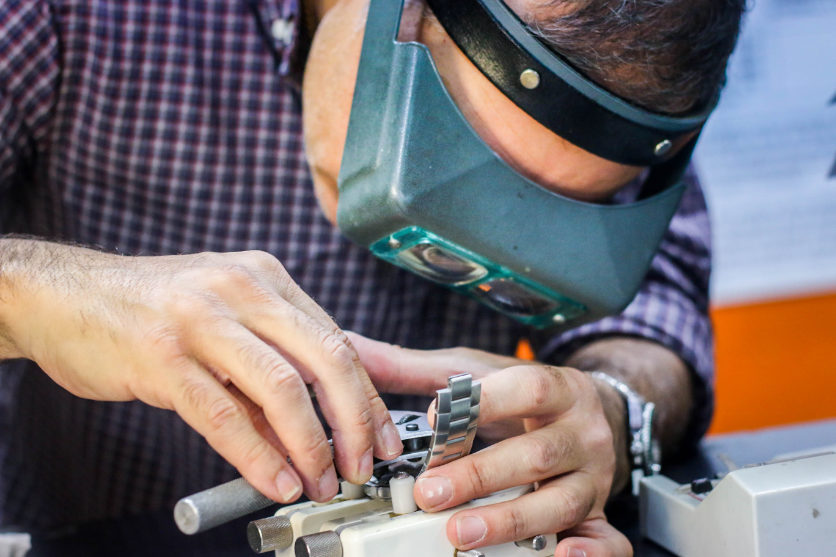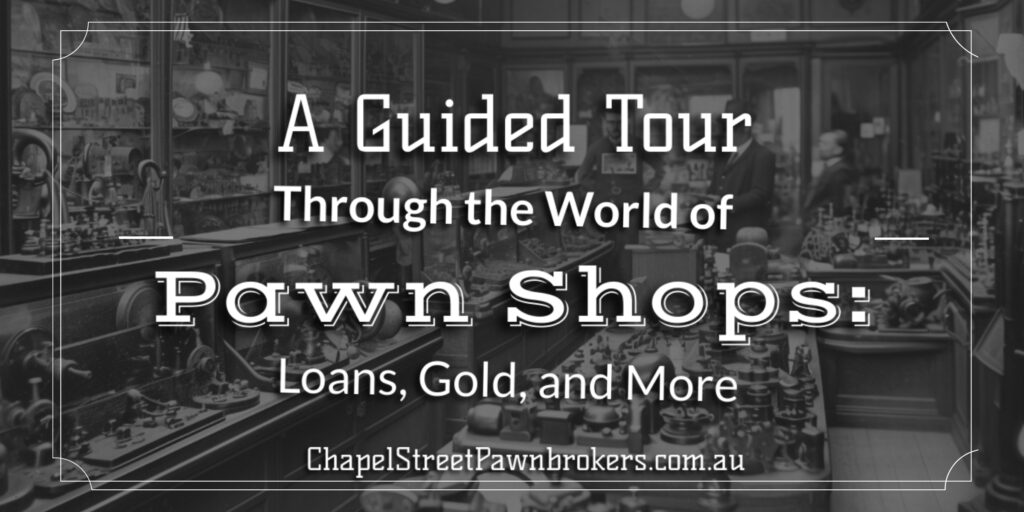In the bustling marketplace of financial transactions, pawnshops stand as unique and often misunderstood entities. They are like the old, wise merchants of a medieval bazaar, offering a blend of traditional and unconventional services. The world of pawnbroking is rich with history, intrigue, and practicality, and it serves as a vital lifeline for many in need of quick financial assistance.

The Essence of Pawnbroking
A pawnbroker is a businessperson who lends money on the security of personal property left in their possession. Imagine a pawnshop as a financial bridge, connecting those in immediate need of cash with a temporary solution. Unlike unsecured loans, where the lender relies on the borrower’s promise to repay, a pawnshop loan is secured by the item you pawn, which acts as collateral. This collateral is like an anchor, providing security to both the lender and the borrower.
The pawnbroking system is a dance of trust and assurance, where both parties enter into an agreement with clear terms and understanding. It’s a relationship that transcends mere business, often becoming a community’s financial heartbeat.
A Journey Through History
The concept of pawnbroking is not new; it has been a part of human history for over 3,000 years, dating back to ancient China. Throughout the ages, pawnshops have served as financial lifelines for people from all walks of life.
In medieval Europe, pawnshops were often run by monasteries and played a crucial role in helping the poor. The symbol of the pawnbroker, three golden spheres, is believed to be derived from the Medici family’s coat of arms, a family that was prominent in the banking industry.
In the modern era, pawnshops have evolved, but their core function remains the same. They are the quick responders of the financial world, providing immediate assistance without the red tape often associated with traditional banking.
A Real-World Example
Consider this scenario: If you have a valuable watch and need immediate cash, you can take it to a pawnshop. The pawnbroker evaluates it and offers you a loan based on its value. You leave the watch with them, take the cash, and then have a set period to repay the loan plus interest to reclaim your watch.
This example illustrates the simplicity and efficiency of the pawnbroking system. It’s a process that respects the urgency of the borrower’s need while maintaining a level of security for the lender.
How Does a Pawnshop Loan Work?
The process of getting a loan from a pawnshop is a straightforward and often a very quick way to obtain funds. Here’s how the process unfolds:
1. Bringing the Item
You bring an item of value to the pawnshop. It could be anything from jewelry to electronics. The variety of items accepted is as diverse as the goods in a global marketplace.
2. Evaluation
The pawnbroker assesses the item, considering factors like condition, demand, and resale value. This evaluation is a crucial step and requires expertise, akin to a jeweler inspecting a diamond under a magnifying glass.
3. Loan Offer
You are offered a loan based on a percentage of the item’s value, typically between 25% to 60% of its resale value. This offer is the result of a careful calculation, balancing risk and reward.
4. Acceptance and Repayment
You accept the offer and leave the item as collateral. Most pawnshop loans last for 30 to 90 days. If you can’t repay the loan, the pawnbroker has the right to sell the item. The terms are clear and transparent, like reading a well-written contract.
Tips for Preparing the Item
- Clean and Presentable: Make the item look its best.
- Documentation: Bring any certificates or appraisals.
- Functionality: Ensure that electronics or machinery are in working order.
Negotiating Loan Terms
Some pawnshops may allow negotiation on loan terms. Respectful negotiation can lead to a favorable deal, like haggling in a market.

The Difference Between Pawnshops and Other Lenders
In the vast landscape of financial services, pawnshops are like the small, cozy inns along the highway of finance, offering a different experience compared to traditional lenders. They are the hidden gems that provide unique solutions tailored to individual needs.
Pawn vs. Sell
Pawning is like renting out a room in your house, while selling is like selling the house itself. When you pawn, you can get the item back by repaying the loan. When you sell, the item is gone forever. This distinction is vital in understanding the flexibility that pawning offers. It’s a temporary arrangement that leaves the door open for reclaiming your valuable possession.
Lending vs. Pawnshop
Lending is a broad term that includes various types of loans, from mortgages to personal loans. Pawnshops are one specific branch, offering secured loans against personal property. They are the financial equivalent of a specialty store in a shopping mall, focusing on a niche service that caters to immediate financial needs. While traditional lending often involves a lengthy process of credit checks and approvals, pawnshops provide a streamlined, accessible alternative.
Pawnshop Loan vs. Payday Loan
A pawnshop loan is like a secured treasure chest, while a payday loan is like a risky gamble at a casino. Pawnshop loans require collateral, providing a safety net for both the borrower and the lender. Payday loans, on the other hand, are unsecured and often come with high interest rates and fees. The choice between the two is akin to choosing between a well-marked hiking trail and a precarious cliffside path. One offers stability and assurance, while the other comes with higher risks and potential pitfalls.
Bank Loan vs. Pawnshop Loan
Choosing between a bank and a pawnshop is like choosing between a fine dining restaurant and a fast-food joint. Banks offer larger loans with lower interest rates but require credit checks, more paperwork, and often a longer waiting period. They are the grand establishments of the financial world, offering a wide array of services but often with more stringent requirements.
Pawnshops, on the other hand, provide quick, smaller loans without credit checks. They are the financial equivalent of a convenient drive-through service, meeting immediate needs without the frills and formalities. The accessibility of pawnshops makes them an attractive option for those who may not qualify for traditional bank loans or need funds urgently.
The Role of Pawnshops in Financial Inclusion
Pawnshops play a crucial role in financial inclusion, especially in communities where traditional banking services may be limited or inaccessible. They are like the community wells in a financial desert, providing essential liquidity to those who might otherwise be left thirsty.
By offering loans without the need for credit checks or extensive documentation, pawnshops extend financial services to a broader segment of the population. They are the financial lifelines for those who may be excluded from the traditional banking system due to poor credit history or lack of formal employment.
Renewing a Pawnshop Loan
Renewing a pawnshop loan is like extending a vacation when you’re not ready to go home. It gives you more time to enjoy the experience but comes with additional costs. The process of renewal is an essential aspect of pawnshop loans, offering flexibility and options for those who need more time to repay.
The Renewal Process
1. Paying Interest: You pay the interest accrued so far. This is like paying for an extra night at a hotel to extend your stay.
2. Extending the Loan: The loan period is extended, giving you more time to repay the principal. It’s akin to getting an extension on a deadline, providing breathing room but with continued responsibility.
Considerations for Renewing or Letting the Loan Expire
Evaluate Your Ability to Repay
Can you repay the loan soon, or do you need more time? Assessing your financial situation is crucial, much like planning the itinerary of a trip. Knowing your capabilities and limitations helps you make informed decisions.
Understand the Costs
Know the fees and interest associated with renewing the loan. It’s like understanding the extra charges for extending a hotel reservation. Being aware of the costs helps you weigh the benefits and drawbacks of renewal.
Negotiating Renewal Terms
Some pawnshops may allow negotiation on renewal terms. This is an opportunity to discuss the interest rates, fees, and duration of the extended loan period. It’s like negotiating a better deal for a prolonged stay at a resort.
What Happens if You Don’t Renew?
If you don’t renew or repay the loan, the pawnbroker can sell the item. It’s like forfeiting a reservation; you lose your spot, and someone else can take it. This is a critical aspect of pawnshop loans, and understanding the consequences of non-renewal is vital.
Tips for Successful Renewal
- Communicate with the Pawnbroker: Keep an open line of communication. It’s like staying in touch with the hotel reception to ensure they know your plans.
- Plan Ahead: If you think you might need to renew, plan ahead. It’s like booking an extended stay in advance to secure the best rates and availability.
- Read the Terms Carefully: Understand the terms and conditions of renewal. It’s akin to reading the fine print on a travel package to avoid unexpected surprises.
- Consider Alternatives: If renewal seems costly or unfeasible, consider other options such as repaying the loan or selling the item. It’s like exploring alternative accommodations if extending your stay becomes impractical.
The Difference Between a Gold Loan and Pawning
Gold loans and pawning are two distinct financial options that involve valuable assets such as gold. While both provide opportunities to secure funds, they cater to different needs and preferences and operate under different terms and conditions. Understanding the nuances of these two options can guide individuals to make informed decisions that align with their specific financial needs and circumstances. Whether seeking a formalized structure with potentially lower interest rates or a more flexible and immediate solution, both gold loans and pawning offer unique pathways to financial support.

Features of Gold Loans
- Loan Amount: The amount is based on the weight and purity of the gold. It’s like measuring the worth of a golden treasure.
- Interest Rates: Generally, gold loans come with competitive interest rates, making them an attractive option for many borrowers.
- Repayment Options: Gold loans offer various repayment options, providing flexibility in how you manage the loan.
- Security: The gold is kept securely by the lending institution, ensuring its safety during the loan period.
Pawning
Pawning involves leaving any valuable item, including gold, with a pawnbroker as collateral for a loan. It’s like trading a golden apple for a temporary boon. This is a more flexible option but may come with higher interest rates.
Features of Pawning
- Versatility: Pawning is not limited to gold; other valuable items can also be pawned.
- Quick Process: Pawning usually involves a faster process, making it suitable for urgent financial needs.
- No Credit Checks: Unlike gold loans, pawning doesn’t require credit checks, making it accessible to a wider audience.
- Interest Rates: Interest rates for pawning may be higher, reflecting the more flexible and immediate nature of the service.
Key Differences
Institutions Involved
Gold loans often involve banks or specialized financial institutions, while pawning is done at pawnshops. It’s like choosing between a grand golden palace and a local golden inn; each offers unique services and ambiance.
Interest Rates
Interest rates for gold loans might be lower than general pawnshop loans. It’s akin to the difference between a golden discount and a golden premium; one offers savings, while the other may come with additional costs.
Loan Terms
Gold loans often have more structured and formalized loan terms, while pawning offers more flexibility. It’s like the difference between a golden contract and a golden handshake; one is more rigid, while the other allows room for negotiation.
Accessibility
Gold loans may require more documentation and eligibility criteria, while pawning is more accessible to a broader range of people. It’s like a golden gate with a key versus a golden path that’s open to all.
Tips for Choosing Between Gold Loan and Pawning
- Assess Your Needs: Understand what you need from the loan and choose the option that aligns with your requirements.
- Compare Interest Rates: Look at the interest rates for both options to make an informed decision.
- Consider the Loan Duration: Think about how long you need the loan and choose the option that offers suitable terms.
- Evaluate the Security: Consider how your gold or valuable item will be kept secure during the loan period.
Gold loans and pawning are two distinct financial tools, each with its unique characteristics, benefits, and considerations. Whether you choose the path of the gold loan with its formal structure and competitive rates or the path of pawning with its flexibility and accessibility, understanding the landscape helps you navigate the golden forest of financial opportunities with confidence and clarity.
Conclusion
The world of pawnshops is a rich tapestry, woven with threads of opportunity, accessibility, and flexibility. From the simple act of pawning a cherished item to the complex dance of renewal, pawnshops offer a unique financial avenue.
Summary
Pawnshops are not grand banks or risky gambling dens but humble, accessible places that offer a hand when needed. They are the old bridges that connect financial needs with immediate solutions, the golden keys that unlock temporary treasures, and the cozy inns that provide shelter in the financial journey of life.
Whether you choose to cross these bridges or not, knowing they exist and understanding how they work can empower you to make informed financial decisions. Like a map in your pocket, this knowledge can guide you when you find yourself at the crossroads of financial need and opportunity. The journey through the world of pawnshops is filled with lessons, insights, and opportunities, waiting for those willing to explore.

